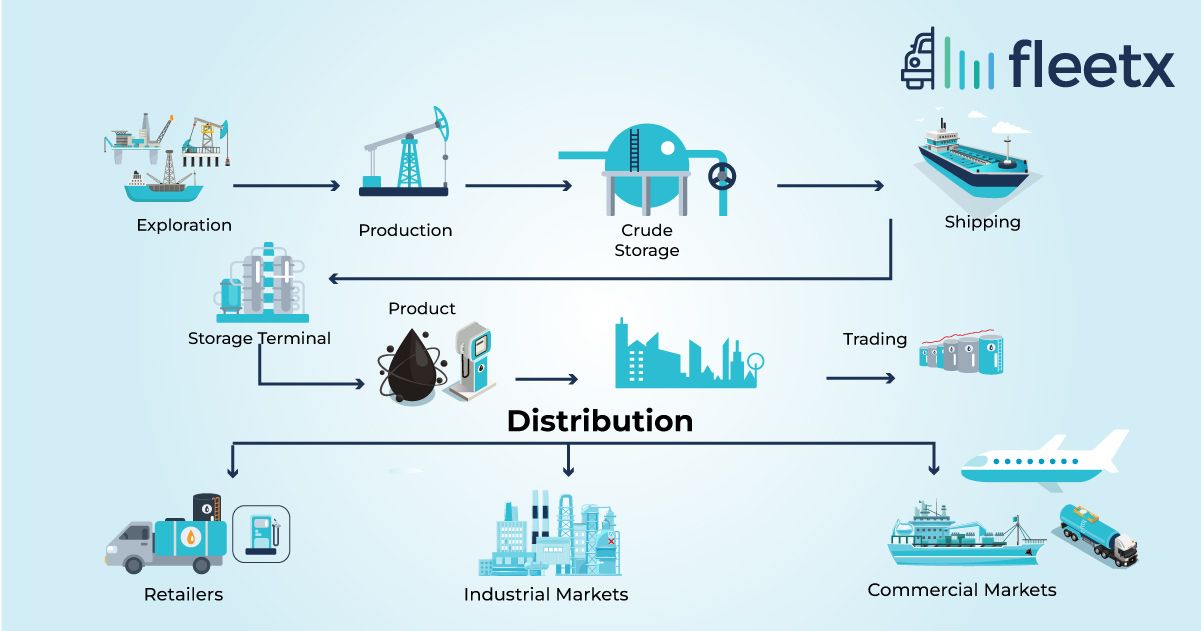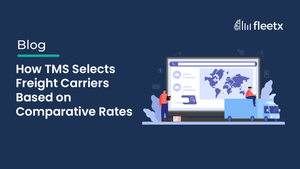
The United Arab Emirates is one of the most important countries in the world from a logistics & supply chain perspective. Seven emirates make up the country: Abu Dhabi, Dubai, Sharjah, Ajman, Umm Al-Quwain, Fujairah, and Ras Al Khaimah. UAE has seen a shift from being a logistics hub to a supply chain nerve centre primarily for Asia, Europe, and MEA. The shift has resulted from economic diversification, effective implementation of the national logistics plan, and digital transformation by private and public entities across the region. Investments in the logistics and supply chain sector are also key reasons for developing UAE's supply chain industry.
The logistics market in UAE was valued at almost 20 billion USD in 2020 and is likely to grow with a CAGR of 6.84% between 2022-26. The rapid growth of e-commerce in the region, especially in the post-pandemic economy, has positively impacted the logistics and supply chain industry. Consumer preference is rapidly shifting from conventional stores to e-commerce. As a result, logistics service providers are rapidly expanding and improving their transportation and distribution operations to cater to these e-commerce businesses. Thus, we can confidently presume a positive co-relation between advancement in e-commerce and improving supply chain operations within the region.
The boost in logistics and supply chain operations and its increasing share in the region's economy has allowed the Emirates to focus on other non-petrochemical sectors witnessing stagnation, such as manufacturing, which further boosts demand for supply chain services. However, despite the advancements, the supply chain industry remains fragmented and unorganised with several vendors. The covid-19 pandemic affected supply chain operations in the region, with road transport being affected due to the sealing of borders. Moreover, the pandemic has forced several logistics operators to shift to remote work. The shift highlighted several regional supply chain problems, particularly the ineffective shift to remote operations affecting the supply chain.
Logistics and Supply Chain challenges in the UAE
The fragmented logistics and supply chain sector present several challenges to the efficiency and growth of operations. This section looks at some of the most pressing challenges plaguing the country's supply chain operations.
Road transportation-related challenges
A growing population and influx of expatriates in key economic centres in the UAE continue to worsen traffic congestion. Traffic congestion can lead to delays in shipping which further reduces the fleet's and drivers' productivity. Moreover, traffic delays also lead to high fuel usage and negatively impact fuel efficiency, further adding to the cost of operation. Additionally, most drivers in UAE are expatriates from other Asian countries with little to no experience on roads in UAE and relatively lower wages. As a result, they tend to speed to make more deliveries, increasing the safety risk for the vehicle and cargo.
Fluctuations in fuel price affect operating costs
The fuel cost is the most significant expense for transportation. Despite being a major oil & gas exporter, the Emirates has also not been immune to fluctuations in fuel prices globally. Prices at fuel pumps are set based on benchmarks provided by S&P Global, with an additional margin added to compensate retailers for transportation & logistics. The Fuel prices in UAE have risen over 74% since January 2022, thus, having a ripple effect on the cost of transportation and the supply chain. The diesel price rose as high as 4.76 AED or 103.58 INR per litre in July 2022, with the current price being around 4.14 AED or 90.09 INR in August 2022. Such sharp fluctuation in fuel prices also leads to fluctuations in the cost of the supply chain in the region, thus, hindering businesses from planning for long-term efficiency in the supply chain. Thus, it becomes crucial for businesses to improve fuel management and efficiency for their fleet.
Lack of automation in warehousing
Increasing e-commerce in the region has led to an exponential increase in demand for warehouses. However, most warehouses in the UAE still operate with little technological integration. Lack of automation also leads to issues like inaccurate inventory management affecting the cost, efficiency, and innovation in supply chain operations. The resistance to automation is propelled due to cheap labour. Increasingly, warehouse automation service providers are witnessing an increase in demand for automation services, primarily by small and medium-sized businesses in the region.
Inaccurate inventory management
Manually operated warehouses are more prone to inventory error since it requires workers to manage it manually. Lack of information & technology integration in inventory management also means they are not updated in real time, thus, reducing the efficiency and accuracy of operation.
Lack of data and insights from operations
E-commerce supply chains are relatively fast-moving when compared to other industrial supply chains. Thus, inventories need to be constantly updated, and orders must be simultaneously processed, packaged, and shipped to keep up with the supply and demand of goods. Lack of technology in such operations means there is little data and insights for businesses to analyse and fix supply chain bottlenecks and inefficiencies.
Given rising demand, the government has also taken several positive measures to improve the regional supply chain infrastructure and transportation connectivity. One such initiative includes Dubai Silk Road Strategy, which aims to boost air and sea freight and enhance logistical integration. Several other initiatives include free zones (for example, Jebel Ali Free Zone) to improve logistics services and offers, increasing the number of special freight corridors, and setting up Integrated Logistics Centres and EV and battery logistics hubs, among others. All these policy decisions will aid integration and digitalisation and promote sustainability in the supply chain operations.
Using technology to tackle supply chain challenges in the UAE
As of 2020, UAE’s mobile cellular subscriptions of 185.7 per 100 users are among the world's highest. Moreover, over 99% of the entire population in the region has internet access, while most also own broadband connections. UAE is also listed as one of the top 10 countries with the highest internet speed. Regarding infrastructure, UAE is ranked 1st regionally and 25th globally, making it one of the leading countries in the world. The World Economic Forum, in its 2019 Global Competitiveness report, ranks UAE at the top on several other indicators such as 2nd in electricity access, 12th in infrastructure pillar, 7th in road quality infrastructure, and 2nd in adopting Information and Communication Technology pillars. Taking account of the key variables to make the supply chain more efficient, UAE is doing remarkably well on all of them, thus, making it ripe for disruption with sufficient resources in its arsenal.
There are certain measures or solutions businesses in UAE can implement to tackle supply chain problems and make them more efficient.
Using route planning systems for transport operations
Businesses can implement smart route planning and scheduling softwares to ensure their fleet takes the most efficient routes during shipping. Route planning softwares use live traffic data and past trip data to provide the most efficient route to drivers. Moreover, in case of disruptions on the desired route, the software provides rerouting options in real-time. Thus, helping fleets to reduce their travel time and provide an accurate ETA to customers.
Using driver behaviour analytics for improving safety
Businesses can integrate driver behaviour analytics into their fleet to curb such instances, tackle the safety issue, and bring down human errors during operations. Driver analytics software can further assist logistics operators in training and incentivising drivers to enhance safety during their operations.
Other transport management tools to improve efficiency and reduce cost
Several other technological solutions are helping businesses and logistics service providers improve their operating efficiency and supply chain visibility, helping them bring the cost of operations down. A fuel management solution can help businesses manage their fuel better and improve fuel efficiency, while a vehicle tracking system allows businesses to gain more visibility in their ongoing operations. Several fleet management companies offer more innovative solutions, such as EV fleet management solutions, to aid businesses in transitioning their operations toward a more sustainable supply chain.
In conclusion, shifting from traditional supply chain management to a more digitalised and integrated one can be pressing and may incur initial costs. However, their multiple benefits can help businesses run more profitably and sustainably, which is the need of the hour. Thus, businesses should shed their apprehensions and integrate their supply chain operations with technology, particularly in countries like the UAE, where the existing infrastructure is more than capable of integrating technology into its supply chain ecosystem.
Is supply chain in demand in UAE?
The expansion of logistics and supply chain operations, along with their growing economic load in the region has given the Emirates more time to concentrate on other non-petrochemical industries that are experiencing stagnation, like manufacturing, which raises the demand for supply chain services.
Is Dubai good for supply chain management?
It is no secret that the UAE is positioned to dominate the globe in supply chain management and logistics. For increased connectivity, Dubai can simply integrate into the free zone and customs-bonded road, rail, and air infrastructure. Dubai is regarded as one of the top maritime hubs. This is pertinent given that the handling of dry bulk cargo and containers for logistics in the maritime sector are expanding quickly, and the government is making major investments to improve supply chain management.







